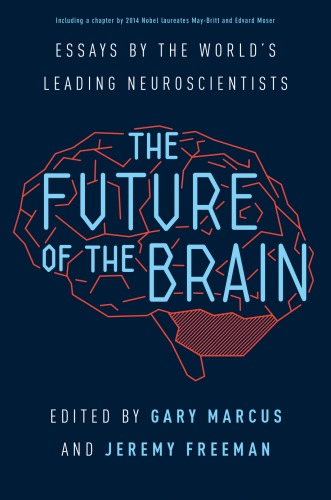
The Future of the Brain
Essays by the World's Leading Neuroscientists
کتاب های مرتبط
- اطلاعات
- نقد و بررسی
- دیدگاه کاربران
نقد و بررسی

October 20, 2014
Cognitive scientist Marcus and neuroscientist Freeman intend this well organized collection of 22 essays to be an introduction to cutting-edge brain science. Yet the work suffers from three shortcomings: repetition; dense, inaccessible text; and misleading focus, i.e., rather than helping readers understand what scientists have learned about brain configuration and function, virtually every essay looks to the future and concludes that at the moment we know remarkably little. In essay after essay, the closing remarks refer to breakthroughs just over the horizon, from understanding the origin of language to the reverse engineering of the brain. A typical claim posits that "by taking advantage of an ever-growing tool kit for investigating gene function, it will at last be possible to bridge the mechanistic gaps between DNA, neurons, circuits, brains, and cognition." One essay advises readers to bear in mind that many scams were perpetrated in the name of science during the push to decipher the human genome and that scientists have a responsibility to "debunk hype, allay groundless fears, and anticipate likely ways in which efforts may be made to exploit or dupe the public."

November 1, 2014
Technology has allowed important advancements in neuroscience research. Here editors Marcus (psychology, New York Univ. and Allen Inst. for Brain Science; Guitar Zero) and Freeman (Howard Hughes Medical Inst.) compile essays from leading neuroscientists who discuss the future of the brain. Contributors include Christof Koch, Arthur Caplan, George Church, and John Donoghue, among many others. The essays, some of which contain references and a list for further reading, are organized by thematic chapters: mapping the brain, computation, simulating the brain, language, skeptics, and implications, to name a few. The editors also devote a section to what the field might be like in 2064. The narratives attempt thought-provoking arguments for the future of the brain and the implications on ethics and human behavior. VERDICT A fascinating book for readers of all levels. Some science knowledge is helpful but not necessary. Recommended for undergraduate and graduate students, researchers, and scholars studying neuroscience and psychology, and anyone interested in learning about neuroscience and the brain in particular.--Tina Chan, SUNY Oswego
Copyright 2014 Library Journal, LLC Used with permission.

























دیدگاه کاربران